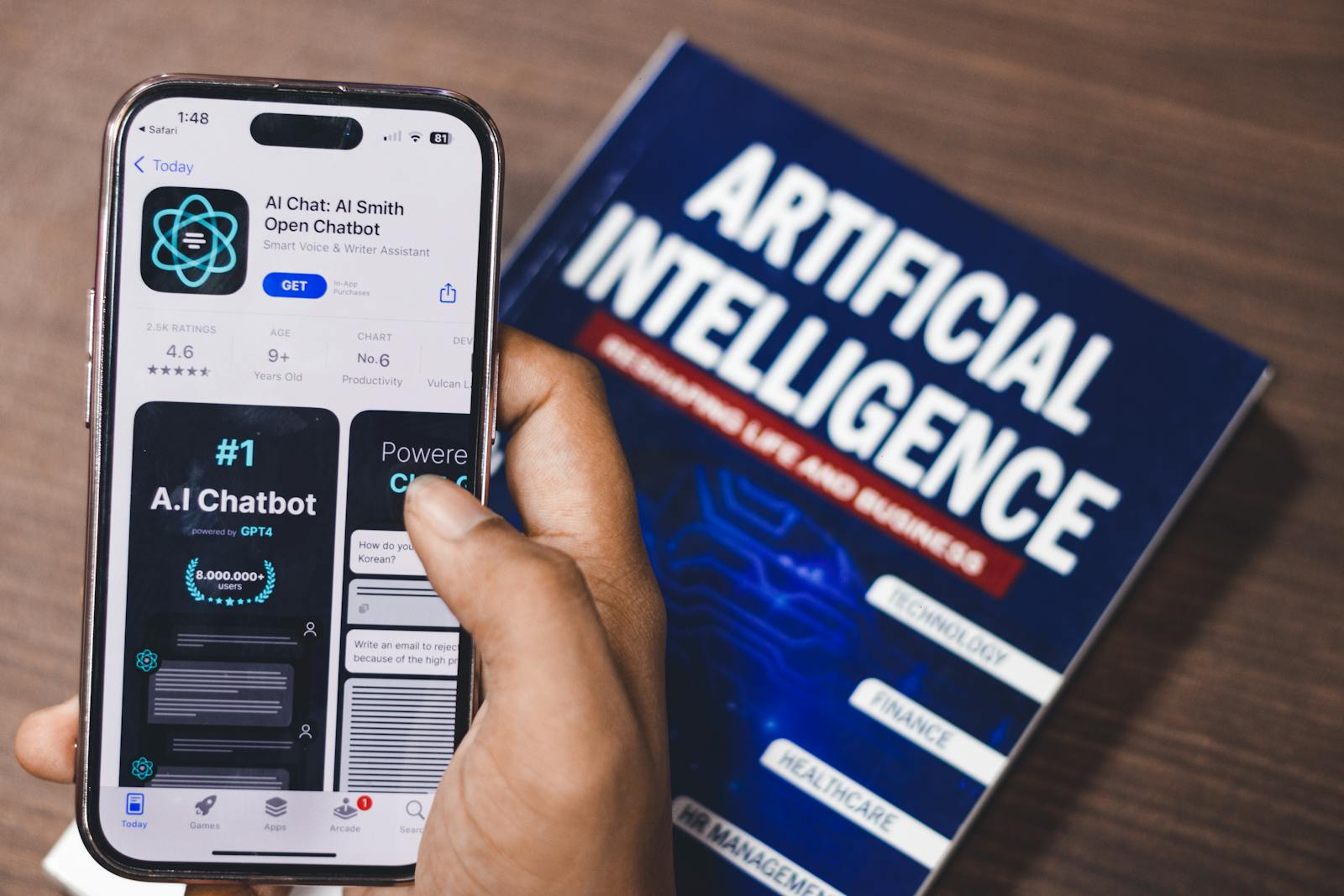The world is entering a decisive moment where technology is no longer simply a background tool but a major actor influencing society, politics, and culture. The AI Digital Revolution has reached a point where its presence is visible on the very first page of newspapers. Today’s Express edition is a striking reflection of this shift. Readers across Mauritius woke up this morning to headlines dominated by artificial intelligence breakthroughs, automation debates, and the future of work proof that the conversation has moved from niche tech circles into the mainstream of public discourse.
In the past, newspaper front pages were shaped almost entirely by human editors and reporters who decided what mattered most. Today, artificial intelligence works side by side with journalists, scanning thousands of documents, transcripts, and online conversations to identify which stories are rising in importance. This new hybrid model is making news production faster, more data-driven, and far more responsive to real-time events. The front page no longer just reports what happened yesterday; it predicts what will matter tomorrow.
AI Digital Revolution and the Media Shift
The media industry is experiencing one of the most profound transitions in its history. The AI Digital Revolution is not simply adding tools to the newsroom; it is redefining how news is discovered, verified, and shared with the public. Algorithms now filter enormous volumes of information to detect patterns, confirm facts, and even suggest new angles for coverage. Journalists are increasingly relying on AI-powered dashboards that highlight trending topics, public sentiment analysis, and breaking developments across multiple sectors in seconds.
This technological leap is transforming the editorial process. Reporters who once spent hours digging through archives or interviewing multiple sources now have instant access to key data points. Editors can measure in real time how readers react to a story, adjusting headlines or adding updates on the fly. The result is a faster, more adaptive news cycle that keeps readers engaged. The Express headlines illustrate this perfectly, with a blend of economic updates, political analysis, and human-interest stories that are curated using both human judgment and AI intelligence.
Yet this shift is not only about efficiency. It is also changing the relationship between media outlets and their audiences. Readers are beginning to expect highly tailored news feeds that match their interests. Many no longer rely on a single newspaper or TV channel but consume a mix of sources optimized by algorithms. The Express front page is now a curated snapshot of what is most relevant at that exact moment, and this personalization is quietly reshaping how the public perceives reality.
AI Digital Revolution and Public Reactions
Whenever a major technological shift occurs, society reacts with a mix of fascination and skepticism. The AI Digital Revolution has sparked intense public discussion about the benefits and dangers of automation. Some citizens see AI as a liberating force that democratizes information and brings transparency to decision-making. Others fear it could amplify bias, spread misinformation, or undermine traditional journalism by prioritizing speed over depth.
These reactions are not purely emotional. Researchers have found that algorithm-driven news can sometimes create echo chambers, where readers are exposed mainly to content that reinforces their existing views. This raises questions about diversity of thought and balanced coverage. The Express headlines reflect this tension, including pieces that celebrate technological progress alongside commentary questioning whether society is moving too quickly. The balance between innovation and caution is becoming a defining issue of our time.
For many readers, the arrival of AI in journalism is both thrilling and unsettling. They enjoy faster news delivery but wonder who is ultimately in control the human editor or the algorithm suggesting what should be published first. This debate is no longer limited to academic conferences; it is part of kitchen-table conversations, workplace chats, and social media debates. The very idea of what counts as “news” is being re-examined through the lens of AI.
AI Digital Revolution in Everyday Life
One reason this topic resonates so deeply is that the AI Digital Revolution is not limited to newsrooms. It is affecting every aspect of daily life, from the apps people use to the services they rely on. Express dedicated a feature today to how AI-powered diagnostic tools are now available in local clinics, allowing doctors to detect illnesses earlier and treat patients more effectively. Similar stories highlighted advances in smart transportation, predictive agriculture, and digital banking.
These developments are not abstract; they are tangible changes shaping how Mauritians live and work. Parents are using AI-powered tutors to help their children with homework. Small businesses are adopting AI tools to forecast sales and manage supply chains. Consumers are interacting with chatbots for customer service, sometimes without even realizing that there is no human on the other side. This is the revolution the Express is documenting: a steady, irreversible integration of artificial intelligence into the social fabric.
Seeing these topics featured so prominently on the front page serves as a wake-up call. The future is no longer something to speculate about it is here, unfolding in real time. Whether one views it with excitement or apprehension, ignoring it is no longer an option.
AI Digital Revolution and Economic Transformation
The economic dimension of the AI Digital Revolution is one of the most discussed topics in today’s Express coverage. Businesses are adopting automation at record speed, leading to major shifts in the labor market. Some industries are thriving by using AI to cut costs, predict demand, and improve customer experiences. Others are facing disruption, with traditional roles becoming obsolete and workers needing to retrain to remain competitive.
Today’s headlines explored how local Mauritian companies are experimenting with AI to optimize logistics, improve manufacturing efficiency, and offer personalized online services. For example, a leading retail chain is using AI to predict which products will sell faster during the holiday season, reducing waste and improving profits. These advancements create opportunities for growth but also raise tough questions about job security and equitable access to technology.
Economists argue that while automation may initially displace certain jobs, it also generates entirely new categories of work. Demand for data scientists, AI trainers, and cybersecurity experts is rising sharply. Governments and educational institutions are now under pressure to prepare future workers for this digital economy, offering training programs and incentives for reskilling. The Express editorial section highlights the urgency of this transition, urging policymakers to take proactive steps to avoid widening inequality.
AI Digital Revolution and Political Impact
The AI Digital Revolution is not limited to economic activity; it is also reshaping the political landscape. Politicians are increasingly using AI tools to understand public sentiment, craft targeted messages, and manage campaigns with unprecedented precision. Today’s Express front page covered a story about how machine learning models are analyzing social media trends to predict voter behavior months before elections.
While these innovations can make political engagement more effective, they also spark ethical concerns. Critics fear that algorithmic profiling could be misused for manipulation or disinformation campaigns. Express reports included expert commentary on the need for transparent regulations to ensure that AI is used responsibly in political communication.
Another significant point in today’s coverage was the rise of AI in government decision-making itself. Policy simulations, automated risk assessments, and predictive policing are becoming part of the public sector toolkit. This raises a crucial debate: how much decision-making power should be delegated to machines? Public trust will depend on clear accountability frameworks, and this is now a major topic of conversation in Mauritius and beyond.
AI Digital Revolution and Education Reform
Education is one of the sectors most dramatically influenced by the AI Digital Revolution, and the Express devoted an entire segment to this topic. AI-driven adaptive learning platforms are helping students learn at their own pace, offering personalized feedback and recommending exercises based on performance data. Teachers are using AI tools to analyze class progress, identify struggling students early, and design more effective lesson plans.
However, the adoption of AI in schools also highlights challenges. There are concerns about data privacy, equitable access for students in rural areas, and the risk of over-reliance on technology at the expense of critical thinking skills. The Express editorial team stressed that education reform must strike a balance: embracing technological tools while ensuring that human mentorship and creativity remain at the center of the learning process.
The broader implication is that future generations will grow up in a world where AI literacy is as important as reading and writing. Preparing students for this reality is not just an educational issue but a national priority. Mauritius, like many countries, is exploring ways to integrate AI awareness into its curricula so that children are not just passive users of technology but informed participants in the digital revolution shaping their society.
AI Digital Revolution and Social Dynamics
The social consequences of the AI Digital Revolution are becoming increasingly visible. Families, workplaces, and communities are all adapting to a reality where machines assist with decision-making, communication, and even emotional support. The Express explored how social networks are integrating AI to detect harmful content, protect users from scams, and recommend connections based on shared interests.
This shift is changing the rhythm of daily interactions. People spend more time on personalized feeds, engage with AI-generated recommendations, and rely on virtual assistants to coordinate tasks. Some sociologists warn that this could reduce spontaneous human interaction, while others argue it is creating entirely new forms of social engagement. The front page coverage highlights both sides of the debate, encouraging readers to reflect on how their own habits are evolving in this digital age.
Public opinion surveys cited in the Express suggest that a majority of Mauritians are cautiously optimistic about AI’s role in society. They appreciate its convenience but want stronger guarantees around transparency, fairness, and ethics. This nuanced view is exactly what National Sentiment coverage aims to capture: not just what is happening, but how people feel about it.
AI Digital Revolution and Global Connections
The AI Digital Revolution is not a local phenomenon. It is a global movement connecting Mauritius with innovation hubs around the world. Today’s Express featured a special report on how international collaboration is accelerating AI research. Partnerships between Mauritian universities and global tech firms are bringing new opportunities for students and startups to join cutting-edge projects.
This interconnectedness also means that global challenges such as data privacy regulations, cybersecurity threats, and AI ethics directly affect Mauritius. The article linked to a World Economic Forum report on AI ethics, reminding readers that local policy must align with international standards to ensure competitiveness and trust.
Such discussions are essential for a small, open economy that wants to remain relevant in the knowledge era. The AI-driven future will favor nations that embrace innovation while protecting citizens’ rights. The Express is encouraging readers and policymakers alike to stay engaged in this global conversation.
AI Digital Revolution and Future Outlook
The final section of today’s coverage focused on the road ahead. The AI Digital Revolution is still in its early stages, and its ultimate impact on society will depend on how governments, businesses, and citizens choose to use it. There are fears about job displacement, surveillance, and algorithmic bias, but there is also hope for unprecedented economic growth, medical breakthroughs, and environmental solutions.
One particularly insightful opinion piece pointed readers to the importance of civic participation. When citizens voice their concerns and ideas, they shape the ethical framework that guides technological adoption. The newspaper called for open public forums, community workshops, and stronger media literacy campaigns to ensure that everyone has a voice in this transformation. For readers who want to explore similar discussions, you can check the National Sentiment Mauritius section for more in-depth articles and analysis.
The message is clear: the revolution is not just technological it is cultural, economic, and emotional. What happens next will be defined by collective choices, not just by algorithms.
Conclusion
The Express front page of September 18, 2025, is more than just a collection of news stories it is a snapshot of a society standing at the edge of transformation. The AI Digital Revolution is reshaping media, economy, politics, education, and daily life. It is challenging long-held assumptions and forcing citizens to reconsider what it means to be informed, to work, and to participate in democracy.
National sentiment is divided but engaged, which is a healthy sign for a society in transition. As Mauritius embraces this new era, the role of journalism will remain crucial: to inform, to question, and to amplify public voices. The Express has captured this moment with clarity, offering readers not just headlines but a lens through which to understand their rapidly changing world.




